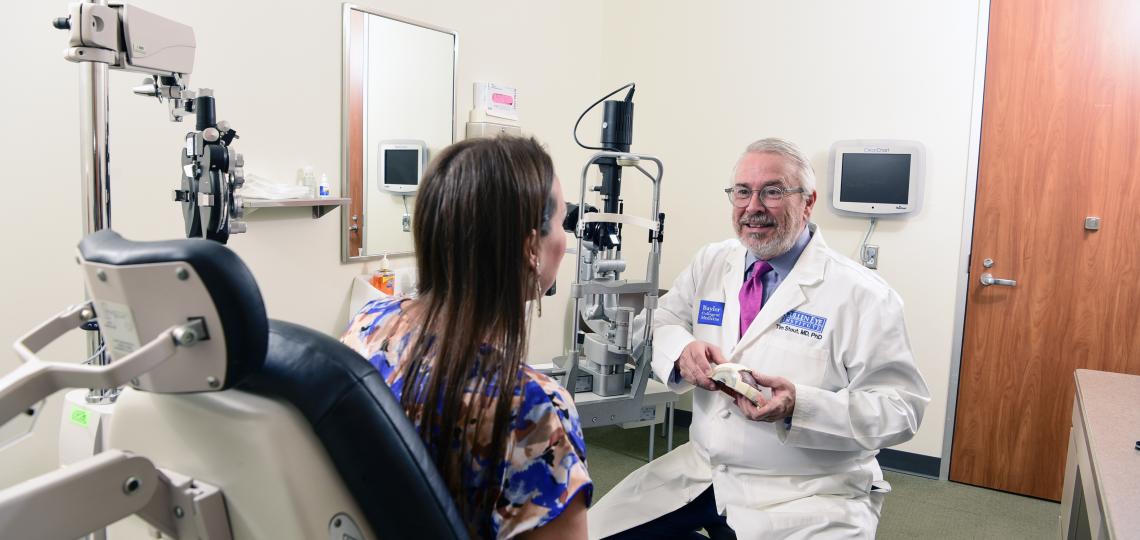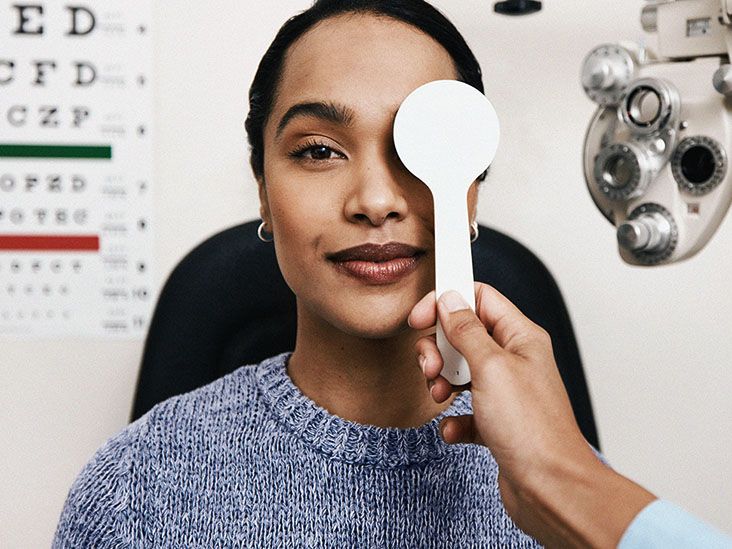Is Refractive Surgical Treatment Right for You? Variables to Consider for Better Eyecare
In the world of eye care, the decision to go through refractive surgical procedure is a significant one that demands thoughtful factor to consider. As people seek clearness and liberty from the restraints of corrective lenses, various aspects enter play when determining the suitability of such a treatment. From the intricacies of one's ocular wellness to the intricacies of everyday behaviors and personal assumptions, each facet holds significance in the broader landscape of refractive surgical procedure candidacy. By assessing these crucial elements with care and accuracy, a clearer path towards notified decision-making emerges.
Eye Health And Wellness Examination
When thinking about refractive surgical procedure, an extensive eye health analysis is essential to analyze the suitability of the procedure for every person. eye doctors in andalusia. This analysis involves a series of evaluations and tests carried out by an eye treatment expert to identify the total health and wellness of the eyes, the presence of any kind of underlying problems, and the security of the refractive mistake
During the evaluation, different elements are taken into consideration, such as the individual's case history, current eye prescription, corneal thickness, student size, and tear movie quality. These analyses help to recognize any contraindications to refractive surgical procedure, such as corneal abnormalities, cataracts, or untreated eye infections. Furthermore, the evaluation assists to take care of client expectations relating to the potential results of the surgical procedure based on their one-of-a-kind eye qualities.
Eventually, the eye wellness evaluation is vital in making certain the safety and efficiency of refractive surgical treatment, as it provides valuable insights into the person's eye health standing and aids identify the most appropriate therapy alternatives for attaining optimal visual results. (eye center andalusia)
Way Of Living Analysis
A comprehensive way of life evaluation is essential in figuring out the viability of refractive surgical treatment for a person's visual adjustment needs. Way of life aspects such as line of work, leisure activities, and day-to-day activities play an important function in the decision-making process concerning refractive surgery. For instance, individuals with professions that entail a high level of physical task or direct exposure to environmental elements may have various aesthetic needs contrasted to those with inactive desk jobs. Comprehending just how an individual's way of life might influence their vision post-surgery is essential for taking care of expectations and ensuring ideal outcomes.
Moreover, way of living habits such as sports involvement, exterior tasks, or even skincare routines can affect the recovery procedure and overall success of refractive surgical treatment. By conducting an extensive lifestyle analysis, eye care specialists can tailor their suggestions and therapy strategies to fulfill the unique needs of each patient, ultimately leading to improved visual outcomes and complete satisfaction.
Expectation Positioning

People require to comprehend that while numerous people attain 20/20 vision or far better complying with refractive surgery, some might still require glasses for particular activities like analysis or driving at night. Handling these expectations assists protect against frustration and dissatisfaction post-surgery, leading to a much more favorable general experience for the person.
Danger Evaluation

Variables that may raise the risk of issues include age, particular medical problems like autoimmune illness, unstable vision prescription, thin corneas, and impractical patient expectations. In addition, selecting a proficient and experienced cosmetic surgeon, adhering to pre and post-operative care instructions carefully, and disclosing any type of pertinent case history can assist alleviate threats.
To minimize the possibility of issues, ophthalmologists carry out detailed pre-operative evaluations to determine any type of contraindications to surgical procedure. They additionally review the potential dangers and benefits with clients during the examination procedure. By taking part in open communication and shared decision-making, both the eye doctor and the person can collaborate to determine if refractive surgery is the best choice based on individual danger accounts and preferred results.
Examination Value
Taking into consideration the essential duty of notified decision-making in analyzing risks and possible difficulties look at these guys in refractive surgical procedure, the examination procedure holds considerable significance in guiding patients in the direction of ideal results. During the consultation, the eye doctor examines the client's eye health, refractive mistakes, and total suitability for surgical procedure. This preliminary evaluation is essential in determining one of the most appropriate procedure for each and every individual, taking into consideration variables such as corneal density, student size, and existing eye problems.
Additionally, the assessment works as a possibility for individuals to discuss their assumptions, worries, and any inquiries they may have regarding the surgical treatment. Clear communication in between the client and the surgeon is essential to make sure reasonable assumptions and a complete understanding of the potential dangers and benefits included.
Additionally, the examination enables the surgeon to clarify the different medical options readily available, their particular results, and the post-operative treatment called for. This extensive discussion encourages patients to make knowledgeable decisions concerning their eye treatment, resulting in much better satisfaction and outcomes post-surgery.
Verdict
In conclusion, people taking into consideration refractive surgery needs to go through an extensive eye health and wellness assessment, examine their way of life behaviors, align their expectations with possible end results, evaluate the affiliated risks, and prioritize assessments with eye care experts. These factors play a critical function in determining the viability of refractive surgery for every individual, ensuring ideal results and complete satisfaction with the treatment.
People thinking about refractive surgical treatment frequently have high expectations regarding the results, expecting excellent vision without the requirement for glasses or contact lenses. While refractive surgery can greatly improve vision and decrease dependency on aesthetic aids, it is essential for clients to understand that results may differ based on specific aspects such as the level of refractive mistake, corneal density, and general eye health.
By involving in open communication and shared decision-making, both the person and the ophthalmologist can work together to determine if refractive surgery is the best choice based on individual risk profiles and desired results.
Taking into consideration the crucial role of notified decision-making in examining threats and possible difficulties in refractive surgical treatment, the assessment procedure holds substantial importance in guiding individuals towards ideal end results. During the consultation, the eye doctor reviews the person's eye health, refractive errors, and general viability for surgical treatment.